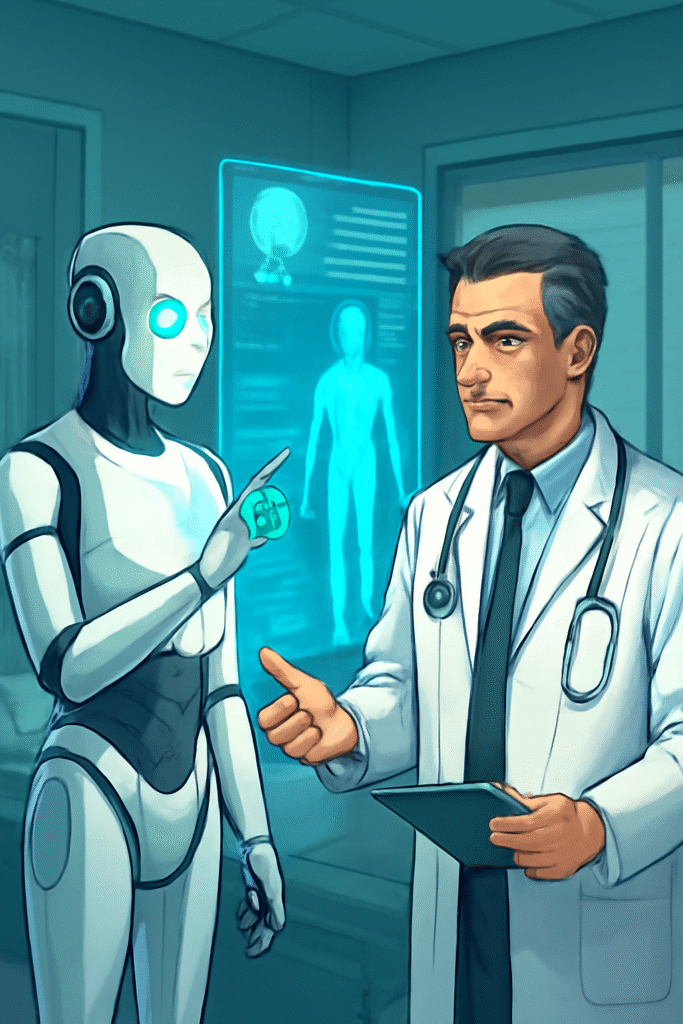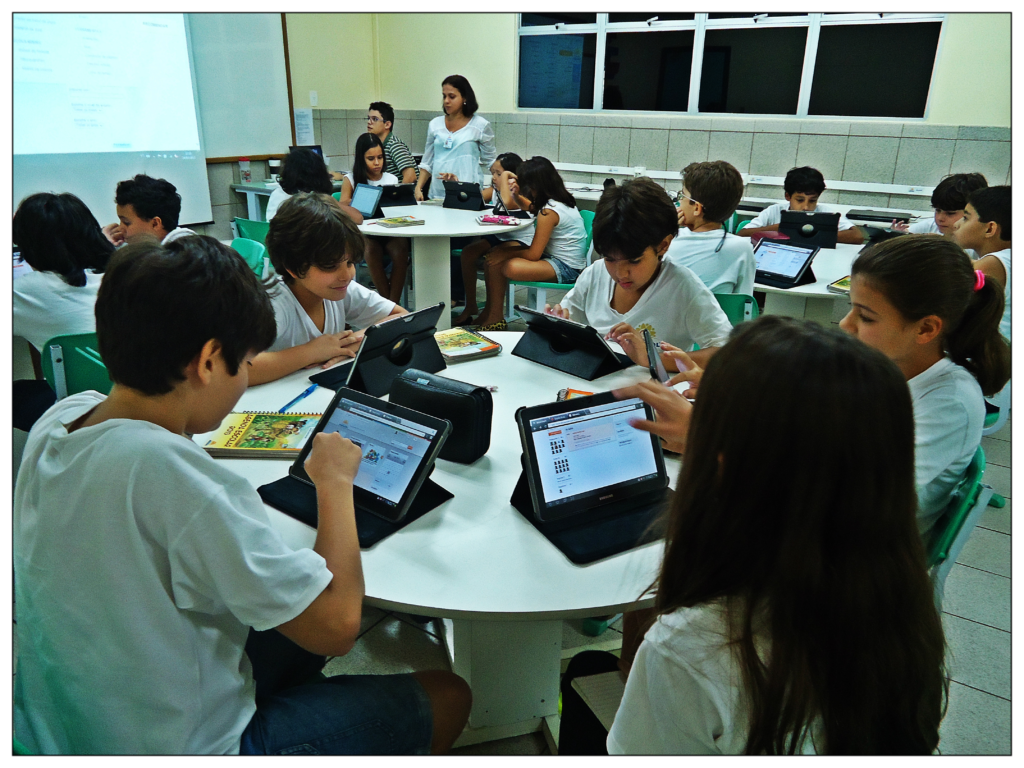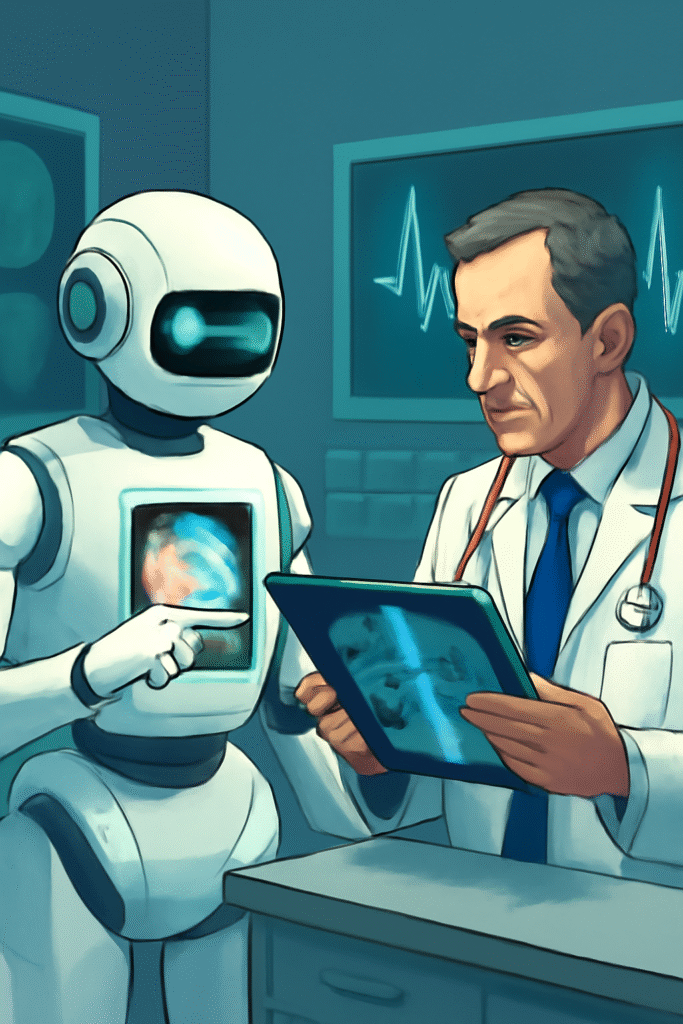O silício ganhou lógica — e o mundo nunca mais será o mesmo.
Imagine acordar amanhã em um mundo onde os computadores antecipam suas necessidades antes mesmo de você percebê-las. Esse cenário já não é ficção científica — é a nossa realidade atual. Máquinas com pensamento computacional infiltraram-se silenciosamente em todos os cantos da existência humana, criando efeitos em cadeia que vão muito além da simples automação.
Do Código Binário à Compreensão Humana
Os sistemas computacionais de hoje possuem capacidades notáveis que espelham processos cognitivos. Essas “mentes digitais” processam informações, reconhecem padrões e tomam decisões com sofisticação crescente. Diferentemente dos softwares tradicionais, que seguem instruções pré-definidas, esses novos sistemas se adaptam, evoluem e aprendem com a experiência.
Esse salto tecnológico representa a inovação mais significativa da humanidade desde a imprensa. Assim como a invenção de Gutenberg democratizou o conhecimento, as máquinas de aprendizagem atuais estão democratizando a própria inteligência. Elas já não são apenas ferramentas — tornaram-se parceiras cognitivas nas atividades humanas.
Transformando a Saúde por Meio do Diagnóstico Digital

Profissionais da saúde agora colaboram com diagnosticadores digitais que não se cansam, não ignoram detalhes e processam volumes imensos de literatura médica em segundos. Esses sistemas examinam estruturas celulares em amostras de tecido, identificam anomalias em ritmos cardíacos e correlacionam sintomas a partir de milhares de casos semelhantes.
Considere a análise radiológica: enquanto especialistas humanos podem avaliar cerca de cinquenta exames por dia, sistemas computacionais analisam milhares simultaneamente, destacando alterações sutis que podem escapar até aos olhos mais experientes. Prontos-socorros já utilizam algoritmos preditivos que avaliam a gravidade dos pacientes, otimizam a ordem dos atendimentos e podem salvar vidas ao acelerar intervenções críticas.
A saúde mental também passou por uma transformação.
Terapeutas digitais oferecem atendimento 24 horas por dia, fornecendo estratégias de enfrentamento e apoio emocional quando profissionais humanos não estão disponíveis. Embora não substituam a empatia humana, funcionam como importantes sistemas de primeira resposta para pessoas em momentos de crise.
Renascimento Educacional nas Salas de Aula Digitais

Os ambientes de aprendizagem passam por uma reestruturação profunda, à medida que sistemas adaptativos personalizam a educação para cada mente individual. Essas plataformas reconhecem padrões de aprendizado, identificam lacunas de conhecimento e ajustam as abordagens pedagógicas em tempo real.
A aquisição de idiomas exemplifica bem essa transformação. Estudantes de mandarim recebem feedback imediato de pronúncia, enquanto aqueles que estudam cálculo ganham exercícios adicionais focados exatamente em suas dificuldades. Sistemas de tutoria virtual oferecem paciência ilimitada, repetindo explicações até que os conceitos se tornem claros.
Comunidades rurais se beneficiam enormemente dessa democratização educacional. Alunos em regiões remotas passam a acessar ensino de nível mundial, antes restrito a grandes centros urbanos. Simulações de laboratório substituem equipamentos caros, e excursões virtuais transportam salas de aula para a Roma Antiga ou para trincheiras profundas do oceano.
Evolução da Força de Trabalho e Adaptação Humana
O cenário profissional muda drasticamente à medida que a automação cognitiva assume tarefas intelectuais rotineiras. Entrada de dados, pesquisas básicas e documentação padrão passam cada vez mais para o domínio das máquinas, liberando os seres humanos para a resolução criativa de problemas e atividades interpessoais.
Essa transição exige reinvenção profissional. Os profissionais mais bem-sucedidos desenvolvem competências que complementam — em vez de competir com — as capacidades das máquinas. Inteligência emocional, síntese criativa, raciocínio ético e comunicação complexa tornam-se habilidades altamente valorizadas.
Ao mesmo tempo, surgem novas categorias de trabalho. Auditores de algoritmos garantem justiça computacional, técnicos digitais orientam implementações responsáveis e designers de interfaces humano-máquina otimizam fluxos de colaboração. Esses cargos não existiam há duas décadas, mas hoje oferecem salários expressivos.
O Paradoxo da Privacidade e as Questões Éticas

A conveniência sem precedentes vem acompanhada de custos significativos para a privacidade. Sistemas digitais exigem enormes volumes de dados para funcionar de forma eficaz, levantando questões fundamentais sobre propriedade da informação e direitos de uso. Cada clique, compra ou localização gera dados valiosos que alimentam o aprendizado algorítmico.
As capacidades de vigilância se expandiram além do alcance governamental e chegaram às salas de diretoria corporativas. Sistemas de marketing preveem comportamentos de consumo antes mesmo que as pessoas reconheçam seus próprios desejos. Companhias de seguros avaliam riscos com base em padrões de atividade nas redes sociais. Essas práticas borram as fronteiras tradicionais entre o público e o privado.
O viés algorítmico é outra preocupação central. Sistemas treinados com dados históricos tendem a reproduzir desigualdades existentes se não forem cuidadosamente monitorados. Algoritmos de contratação podem discriminar determinados grupos, enquanto sistemas de crédito podem reforçar disparidades econômicas entre comunidades.
Benefícios Sociais e Inovação Inclusiva

Apesar dos desafios, a inteligência computacional cria oportunidades inéditas de avanço social. Tecnologias de acessibilidade estão transformando vidas de pessoas com deficiência. Sistemas de reconhecimento visual descrevem o ambiente para usuários cegos, enquanto textos preditivos auxiliam pessoas com limitações motoras.
O monitoramento ambiental também se beneficia enormemente da análise computacional. O processamento de imagens de satélite acompanha o desmatamento, sensores de poluição otimizam a gestão da qualidade do ar, e redes elétricas inteligentes maximizam o uso de energias renováveis. Modelos climáticos passam a incorporar volumes de dados que ultrapassariam a capacidade de análise humana.
Os sistemas de transporte tornam-se mais seguros e eficientes por meio de manutenção preditiva e otimização de rotas. Algoritmos de gestão do tráfego reduzem congestionamentos, enquanto sistemas autônomos de segurança previnem acidentes antes que aconteçam.
Construindo um Marco Responsável para o Amanhã
Avançar exige abordagens equilibradas, capazes de maximizar benefícios e minimizar riscos. Estruturas regulatórias precisam evoluir no mesmo ritmo das capacidades tecnológicas, garantindo que a inovação não ultrapasse as reflexões éticas.
Iniciativas educacionais devem preparar os cidadãos para relações colaborativas com sistemas inteligentes, e não para uma competição baseada no medo. A alfabetização digital torna-se tão fundamental quanto a leitura e a escrita tradicionais.
A cooperação internacional é essencial para garantir que os benefícios tecnológicos alcancem países em desenvolvimento, em vez de ampliar desigualdades globais. Pesquisas compartilhadas e modelos de desenvolvimento open source podem democratizar o acesso a capacidades avançadas.
Abraçando a Coexistência Inteligente
Estamos diante de um limiar histórico, testemunhando o surgimento de inteligências artificiais que ampliam as capacidades humanas de formas sem precedentes. O sucesso dependerá de uma navegação consciente entre inovação e responsabilidade, assegurando que essas ferramentas poderosas sirvam às aspirações mais elevadas da humanidade — e não aos seus impulsos mais primários.
O futuro não pertence apenas aos humanos nem exclusivamente às máquinas, mas à inteligência colaborativa que emerge quando ambos trabalham em harmonia em direção a objetivos comuns.
